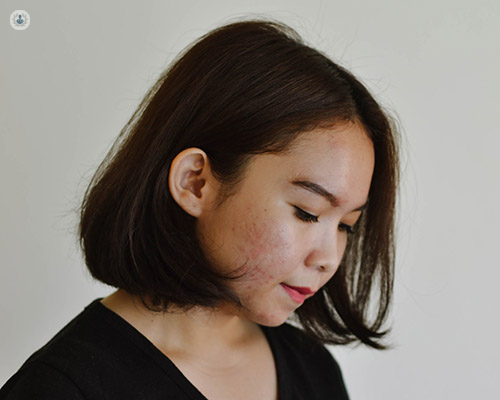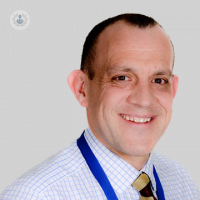All you need to know about acne treatments
Written by:Young people who suffer from acne usually see an improvement after puberty. However, what happens when acne leaves skin lesions and scars that affect the skin texture of the face?
Acne can be treated, but acne scars remain. Acne mainly affects areas of the skin with greater density of sebaceous glands. These include the face, chest and upper back. The presence of pustules and nodules gives rise in some cases to scars that can leave terrible marks on the skin.
In this article here, Dr Christopher Heaton, a well-respected and experienced consultant dermatologist, tells us how acne scars can be avoided, whilst also outlining the various different types of acne scars.

What are acne scars?
Acne scars are the result of infections and inflammations of the skin that in most cases have not been cured properly. Acne scars can last a lifetime.
How can acne scars be prevented?
At present, acne scars can be treated thanks to the innumerable advances in cosmetic medicine. The annoying acne scars that some men and women have can be eliminated nowadays with various techniques.
It is important to emphasise that to prevent the formation of these unsightly scars, it is essential that the person with acne does not pop and pick at pimples because that spreads the infection and causes marks of greater intensity. Prevention plays a relevant role in avoiding the risk of scarring.
What are the different types of acne scars?
In general terms, there are two types of scars: raised and depressed. Depressed acne scars are the most common and show on the skin as holes. Raised acne scars are not as common as depressed acne scars. They are more obvious, present a colouration of the skin, and are more common in people who have darker skin tones, although it is true that this type of epidermis is less prone to suffer from acne.
Depressed acne scars show as broad depressions in the skin, which are commonly known as rolling scars. There is another type that looks similar to chickenpox scars and are known as boxcar scars, and a third type that are called ice pick scars, which are deep and narrow. In most of these cases, patients have had their pimples infected with pus. Generally, these scars are caused by the patient squeezing and picking at their pimples.
How can acne scars be removed?
While proper acne treatment can minimise scarring, there are now a number of procedures and techniques that effectively eliminate these skin lesions. These include surgery-free procedures such as dermabrasion, chemical peeling, microdermabrasion, and treatment with CO2 lasers.
To book a consultation with Dr Christopher Heaton today, simply head on over to his Top Doctors profile.


